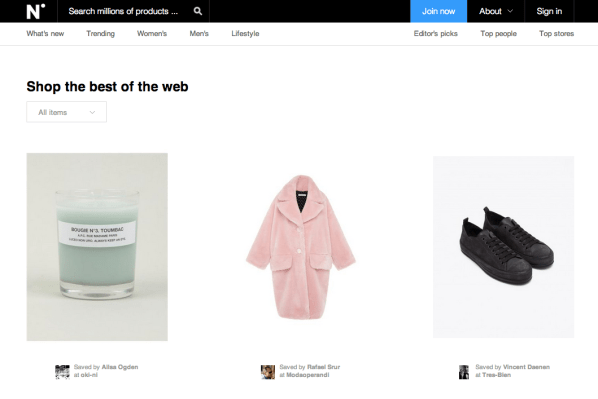Nuji, a U.K. competitor to Wanelo and Lyst which also offers its users a platform to curate and share fashion and lifestyle products they reckon are worth buying, has closed a $2 million seed round with investment coming from TAG, Seedcamp, Samos and various unnamed angels.
The round also includes money from a large European retail investor whose name is not currently being disclosed.
Nuji is using the funding to launch an iOS app, having previously concentrated on developing its website (after an abortive initial attempt to go mobile first). The app is due to launch in April, with no plans for an Android version at this point.
“Now that the website is more mature, it’s the right time to tackle mobile based all of our learnings,” says co-founder Dean Fankhauser.
“It was very important that we focus on web or mobile in the beginning, not both. We wanted to make mistakes on one platform and once we were confident in our product strategy based on data we had, we were more comfortable to dive head first into mobile.”
“Mobile traffic is surging. Every week we look at the stats, it’s increasing. 30% of our traffic is mobile and that’s with a non-mobile optimised website,” he adds. “80% of that is iOS, so it was very clear what we should be developing for.”
The social shopping curation startup, which launched its service in 2011 and did a stint at Seedcamp — taking in funding from the incubator at that time but otherwise bootstrapping development until now — is not currently breaking out any user numbers so presumably has a job of work to do on growing usage. It says its main markets are the U.K. and the U.S.
One way Nuji has been trying to grow is by updating its website. In recent weeks the site has had a makeover and Nuji claims the new look has doubled its engagement metrics — including time on site, pageviews (up from two per visit to four) and clicks through to retailers. The prior 80% bounce rate has also halved, according to Fankhauser.
